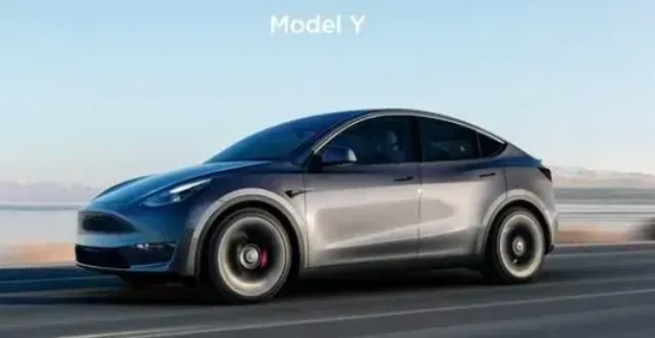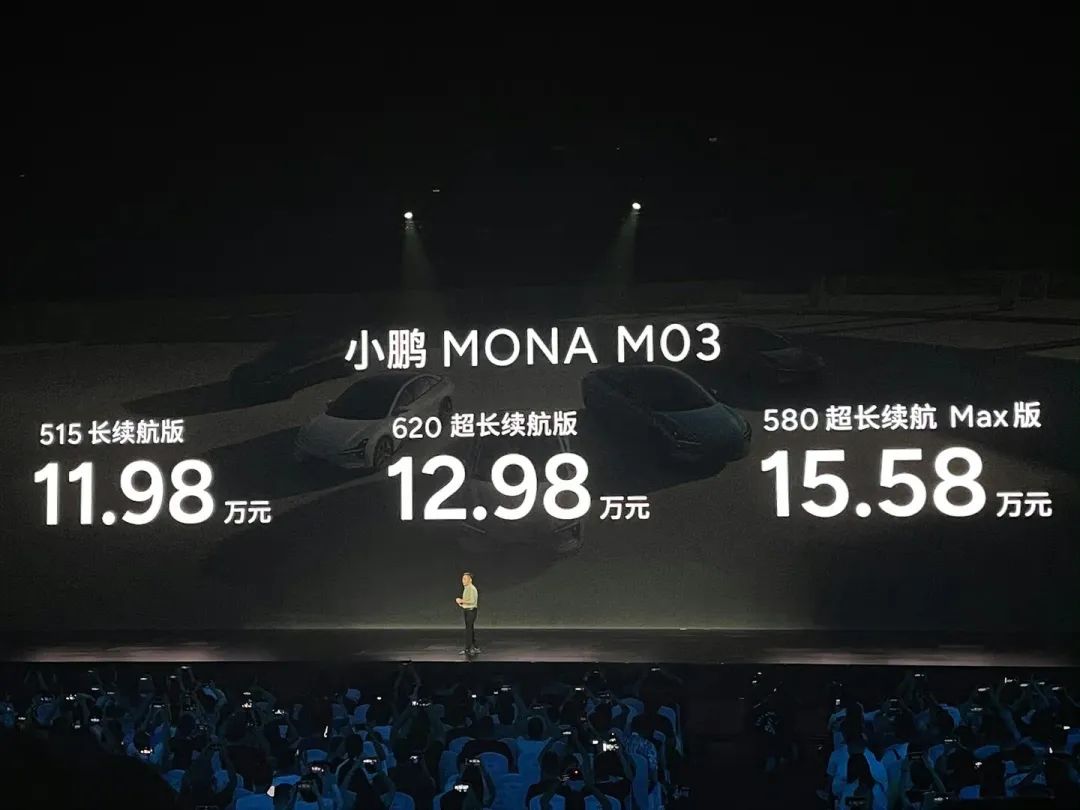On July 22, SAIC Group released “The European Union Held a Hearing, SAIC Submitted the Defense Opinion for the Preliminary Ruling on Anti-subsidy”, stating that at the request of SAIC Group, the European Commission held a special hearing on the anti-subsidy investigation at the EU headquarters in Brussels. SAIC submitted the defense opinion for the preliminary ruling on anti-subsidy and actively safeguarded its legitimate rights and interests. It is expected that the European Commission will make the final ruling on November 2. In view of the unfair, unreasonable and illegal preliminary ruling determination of the European Commission, SAIC Group will reserve the right to take further legal measures.
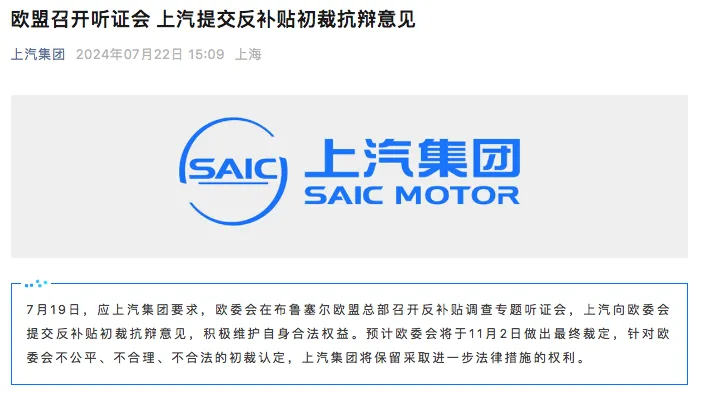
At the special hearing on the anti-subsidy investigation held at the request of SAIC in the EU, SAIC clearly put forward that: the anti-subsidy investigation of the European Commission involves commercially sensitive information, such as the investigation requires to cooperate in providing chemical formulas related to batteries, etc., which exceeds the normal investigation scope; the European Commission has made mistakes in the determination of subsidies, such as confusing the wholly-owned automotive finance company of a foreign joint venture party as an affiliated enterprise of SAIC and including it in the calculation scope of the subsidy rate; during the investigation process, SAIC has submitted thousands of written materials, but the European Commission has ignored some key information and defense opinions submitted by SAIC, and inflated the subsidy rates of multiple projects.
On June 12 this year, the European Commission officially released a document stating that it would start to levy temporary tariffs on electric vehicles from China on July 4, and will levy tariffs of 17.4%, 20% and 38.1% on BYD, Geely Automobile and SAIC Group respectively; and will levy tariffs of 21% or 38.1% on other manufacturers. At that time, many automakers including SAIC Group and Geely Holding expressed great disappointment with this decision. In this regard, SAIC Group said: “In view of the calculation errors existing in the pre-disclosure of the preliminary ruling, SAIC quickly submitted a defense.”
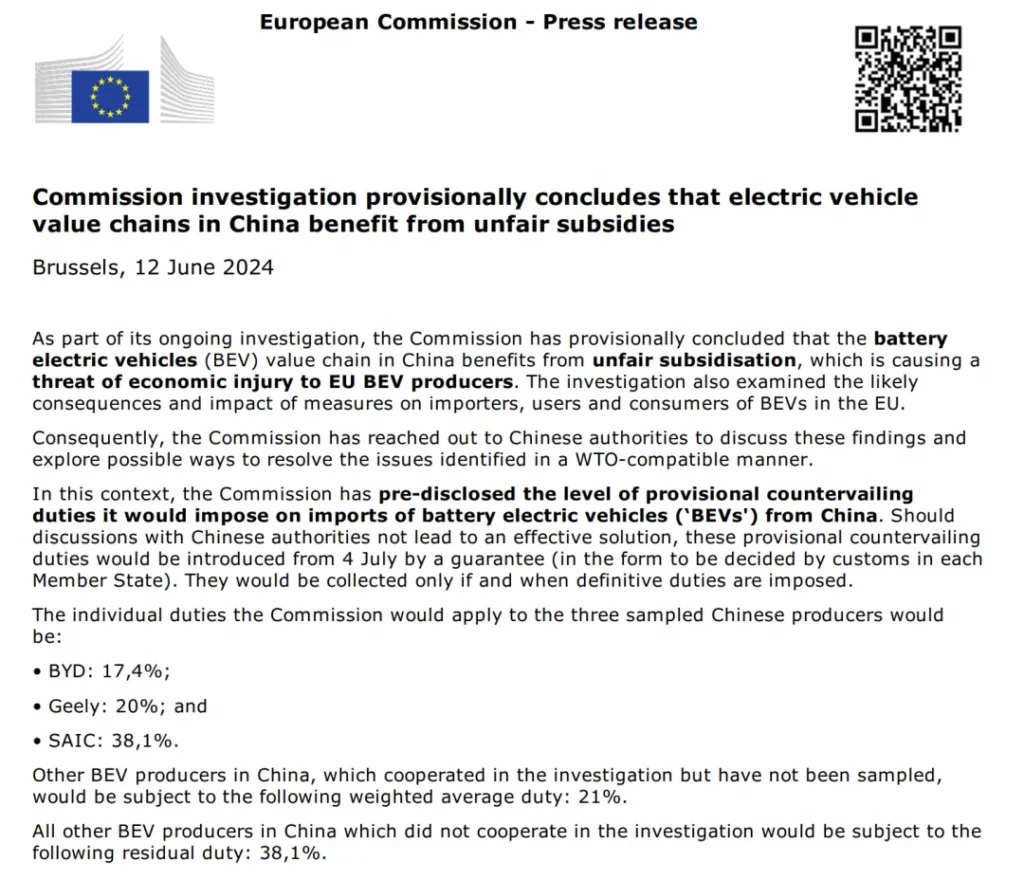
On July 4 local time, the European Commission issued an announcement, deciding to levy a temporary anti-subsidy tax on electric vehicles imported from China as of July 5, with the longest term of four months. During this period, EU member states will vote to decide the final anti-subsidy measure. Once the decision is passed, the EU will officially levy a five-year anti-subsidy tax on Chinese electric vehicles. However, the European Commission said in the announcement that it will continue to negotiate with the Chinese side in order to reach a solution that complies with the rules of the WTO.
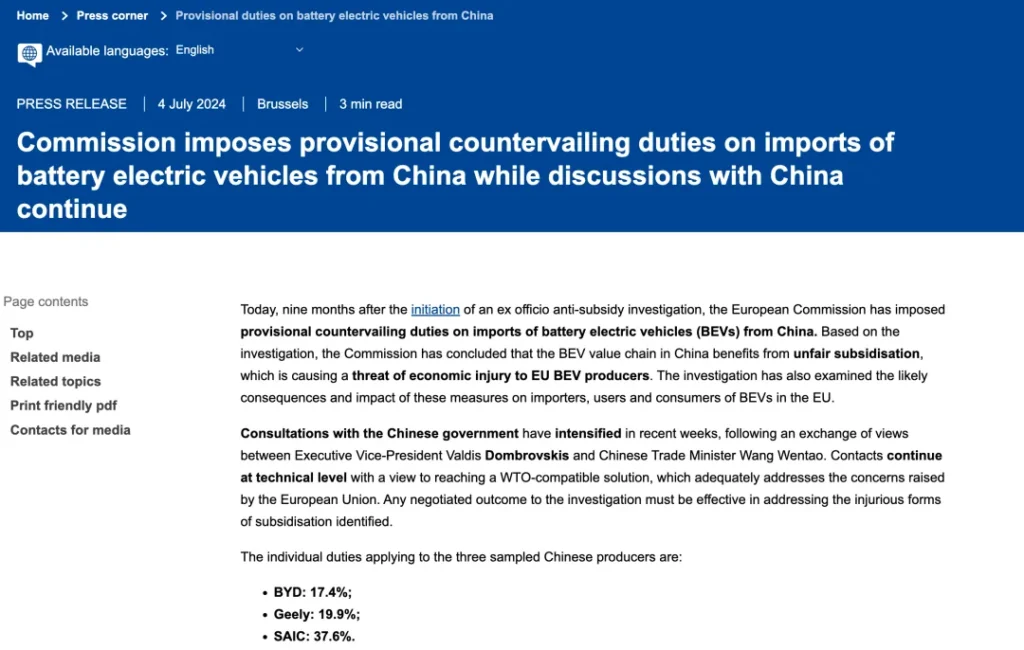
According to the announcement, compared with the tax rate disclosed on June 12, the final tax rate has been slightly reduced, but not by much. Among them, BYD maintained the tax rate of 17.4% unchanged, while Geely and SAIC Group were reduced from 20% and 38.1% respectively to 19.9% and 37.6%, and other Chinese automakers that cooperated but were not sampled will be levied a weighted average tariff of 20.8%, and the tax rate for non-cooperating automakers is 37.6%.
After the release of this measure, many automakers and Chinese associations and the like all made strong statements. Among them, SAIC Group released a statement expressing strong protest and pointed out that in order to effectively safeguard its legitimate rights and interests and the interests of global customers, it will officially request the European Commission to hold a hearing on the temporary anti-subsidy tax measure for Chinese electric vehicles and further exercise the right of defense according to law.
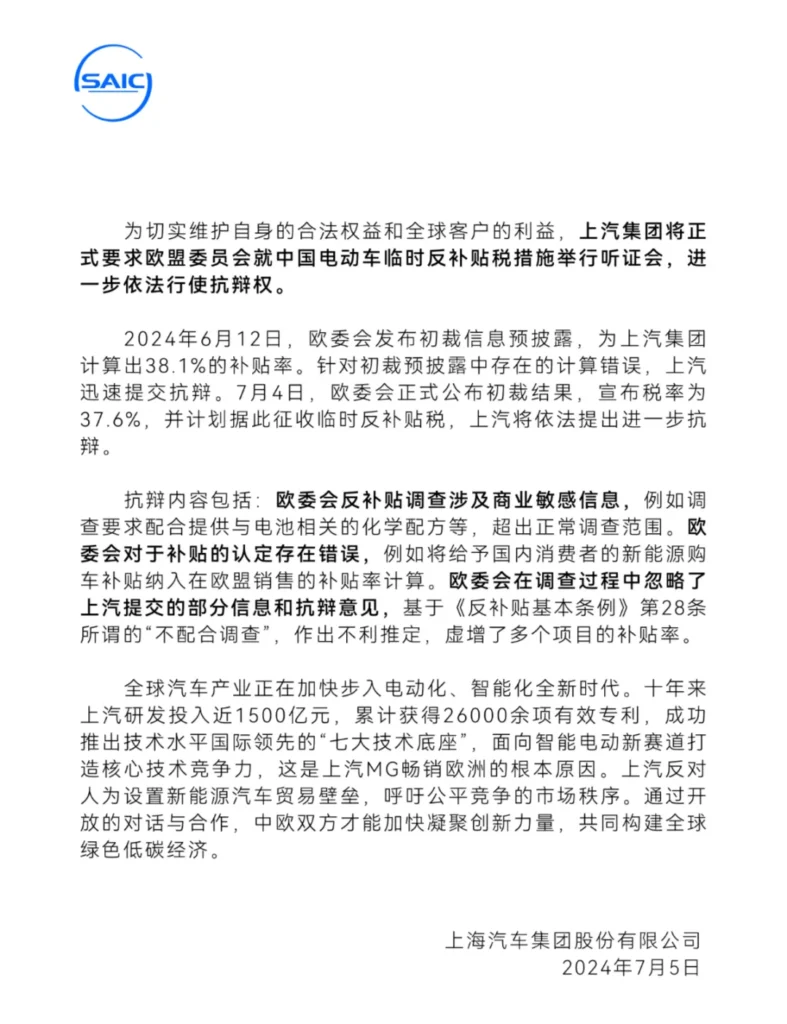
It is worth noting that, according to reports, a few days ago, the European Commission signaled to Volkswagen and BMW that it might consider reducing the import tariffs of electric vehicles made by these two automakers in China. People familiar with the matter said that the European Commission is willing to classify Volkswagen and BMW as companies that cooperate with the sampling survey, thereby reducing the tariffs of Chinese-made models of the two automakers to 20.8%, while the tariff under the current plan is 37.6%. But the European Commission has not yet finally decided whether to reduce the import tariffs of Chinese-made electric vehicles of Volkswagen and BMW. In response to this news, Volkswagen refused to comment, and BMW has not commented for the time being.
At this hearing, the representative of SAIC also called on that open competition can bring progress, and protectionism will only lead to backwardness, hoping that China and Europe can accelerate the cohesion of innovative forces and jointly create global green development through win-win cooperation.
In addition, the representative of the China Chamber of Commerce for Import and Export of Machinery and Electronic Products clearly pointed out: “Many practices of the European Commission in the preliminary ruling of this case that violate the WTO rules and the EU anti-subsidy regulations; the subsidy margin calculated in the current preliminary ruling cannot reflect the real situation of the sampled enterprises in China; the European Commission’s decision to adopt temporary taxation measures has been strongly opposed by some EU member states, the German Automobile Industry Association and major European automakers, seriously damaging the interests of all parties in China and Europe”.
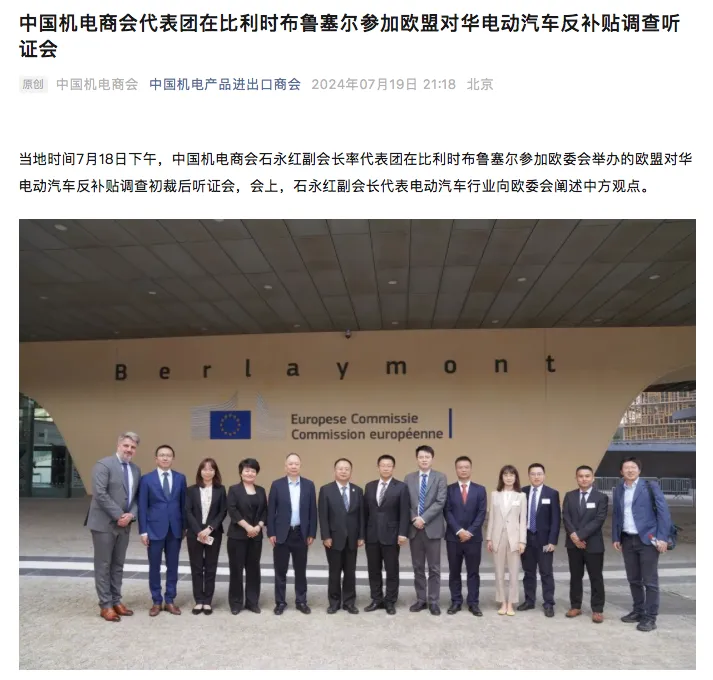
The representative of the China Chamber of Commerce for Import and Export of Machinery and Electronic Products said: “The development and growth of the electric vehicle industry in China and Europe lies in cooperation rather than conflict. At present, the negotiation between the Chinese Ministry of Commerce and the European Commission is underway. It is hoped that the European Commission will move in the same direction as the Chinese side, respond to the call of the EU industry, and reach a balanced solution.”
Before this, on July 6, the China Association of Automobile Manufacturers also issued a document stating that it firmly cannot accept it and called for: “The European Commission should not regard the current phased vehicle trade phenomenon, which is an inevitable stage of industrial development, as a long-term threat, let alone politicize economic and trade issues and abuse trade remedy measures, and avoid damaging and distorting the global automotive industry chain and supply chain including the EU, and maintain a fair, non-discriminatory and predictable market environment.”
